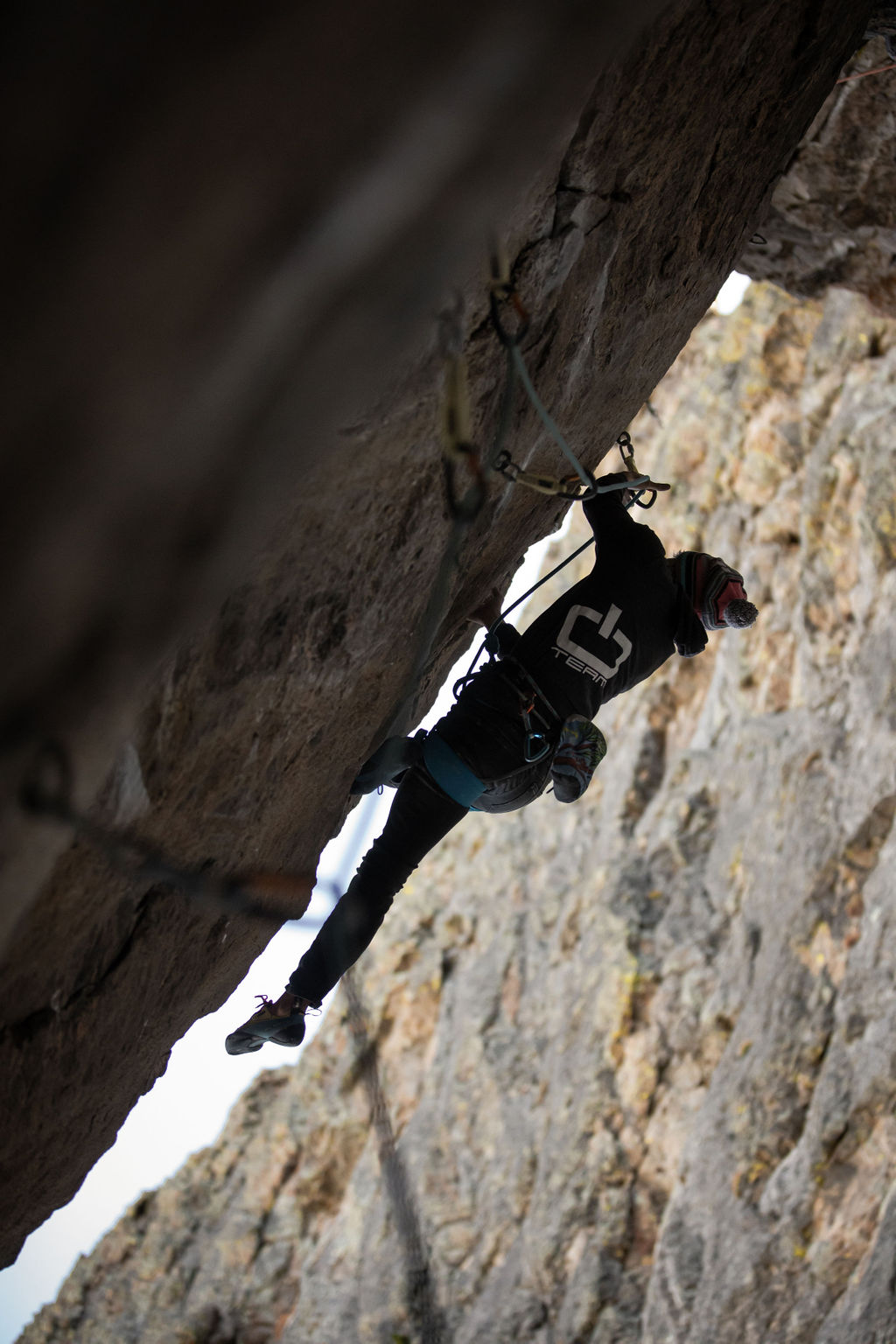When Strengths Become Weaknesses
By: Nathan Drolet
The author climbing at the Wizard’s Gate in Colorado. Photo by Mike Thurk @mthurk
What if wanting to be a better climber is the reason you aren’t improving?
What do you value in good climbing? What does being a "better" climber look like?
If you pride yourself on being a smooth climber, does that make you a failure if you have to struggle and try hard in front of other people? You can’t be seen struggling. The ultimate prize is sending while appearing effortless. But how much time will you waste endlessly searching for the "perfect" beta, only to realize that the answer is to just try harder?
You might be the type of climber who always sees more training as the answer. The only way to guarantee success in-season is hard work in the off-season. Failing to plan is planning to fail. That won’t happen to you though. But when the season starts up and things are going poorly, how do your react? There are only so many good days in a year. Do you sacrifice those days to go back to training?
If you pride yourself on your raw power, will you stop looking for the easiest solutions? You weren’t born with that +4 ape index so that you could grab intermediates. Between the rungs of your campus board, you’ve written “Power to Waste,” in case you forgot why you were there. Skipping holds and breaking sequences are badges of honor, and you wear them proudly. When you blow a send that meant a lot to you because of something reckless, do you take a step back to analyze what happened and make sure that same mistake doesn’t happen again, or do you shrug it off in the name of being "a dumb strong climber?"
If you feel like you have to be the best climber in your circle, climbing with people who will truly challenge and push your abilities becomes a threat to your self-worth. Have you become trapped in your own comfort zone where success is always guaranteed?
How do people compliment your style? This can tell you your shortcomings just as much as your strengths. Just like there is a truth in every lie, there is an insult in every compliment.
What they say:
“He has really strong fingers.”
What they mean:
“He climbs like a ragdoll with hooks for hands.”
What they say:
“She’s a really smooth climber.”
What they mean:
“Put her on a power move and watch her flail.”
What they say:
“They make things look effortless.”
What they mean:
“They never climb near their limit.”
What they say:
“He’s a training machine!”
What they mean:
“Who knew someone so strong could be so bad at climbing?”
What they say:
“He’s really tall.”
What they mean:
“He’s really tall.”
There’s nothing wrong with being a really smooth climber, having strong fingers, taking training seriously, or being brutally powerful.
You can't be strong without having strengths, but your style should be leveraged to your advantage for climbing harder, not become the end goal itself.
You can be a smooth climber who struggles. You can be a thoughtful, powerful climber. You can train seriously without losing sight of why you are training in the first place.











